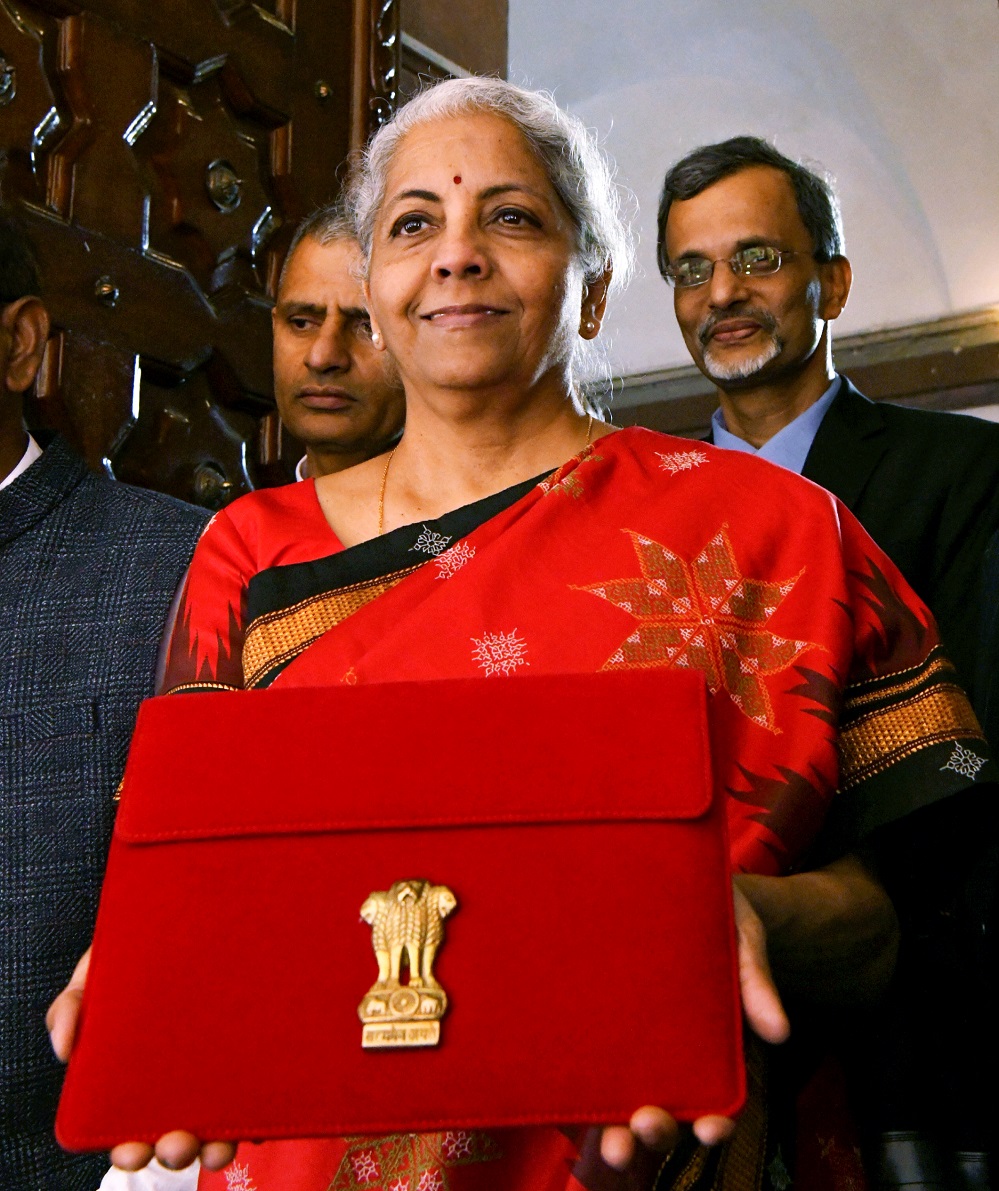Balanced distribution of expenditure in Budget has created positive sentiment in industry.
New Delhi: It has been a bold call for the Modi government to target the headline figure of Rs 10 lakh crore as capital expenditure for FY24, a move strongly endorsed by India Inc and articulated by Chandrajit Banerjee, Director General, CII as signalling a “growth centric Budget, building further on the strategy of high capex” which is strategic to “laying a strong foundation for Viksit Bharat by 2047”. Though the developments are a tad too early for a detailed plan for moolah push by companies, the balanced and progressive distribution of expenditure in the 2023 Budget has created a positive sentiment among industry stalwarts about driving in growth through investments, against a backdrop of sustained capex boost by Government. “Central government capex grew by 63.4% in April-Nov’22,” points out Aditi Nayar, Chief Economist ICRA. “Capex spending is budgeted to rise steeply for the third year in a row,” says Banerjee. “Capex spending in FY24 as compared to budgeted print of Rs 7.5 lakh crore in FY23, implies over 33% rise in FY24 Budget estimates over FY23 BE. “This is in line with CII recommendations,” he adds.
The “historic outlay for public capex”, according to Subhrakant Panda, President, FICCI, will have a multiplier effect across myriad sectors of the economy besides crowding in private investment. Among the big ticket items in capex agenda that can encourage inflows from the private sector are 100 critical transport infrastructure projects, for last and first mile connectivity for ports, coal, steel, fertilizer, and food grains sectors with investment of Rs 750 bn, including Rs 150 billion from private sources. The other potential area are 50 additional airports, heliports, water aerodromes and advance landing grounds which will be revived for improving regional air connectivity and allocation of Rs 100 billion annually under Urban Infrastructure Development Fund for urban infrastructure in Tier 2 and Tier 3 cities.
The Budget has also offered the highest ever capital outlay for Railways at Rs 2.4 lakh crore, the highest-ever outlay and about 9 times the outlay made in 2013-14. This is likely to incentivise private capital flow into areas such as hydrogen train and Vande Metro a mini version of the Vande Bharat Express trains, which is also being developed for intra-city travel. The Railway Ministry has also invited private participation in passenger train services.
Industry also hopes to leverage the government’s boost to agriculture with a budget of Rs 20 lakh crore for the upliftment of the sector. “With farmer-centric solutions, this budget is also providing a large space for private players to grow in the agri-industry,” says Maninder Singh, Founder & CEO, CEF Group (Agri/Energy sector). “The Atmanirbhar Clean Plant Programme where Government has allocated Rs 2,200 crore, is a visionary step which will promote the private sector to establish plants in line with the Make in India campaign. Singh points out the other opportunity for industry in the Government boost to agri-startups by setting up agricultural accelerator funds. India today has more than 600 agritech start-ups at different levels of development. With market potential of USD 65 billion to be unlocked, such data driven solutions have achieved only a fraction of the potential, according to a CII post-Budget report. “It will help new and existing agricultural start-ups to increase their presence in the global market as well,” says Singh.
“With inclusive development, reaching the last mile featuring among the top priorities of the capex allocation of Rs 10 lakh crore, Manish Aggarwal, Director, Bikano, Bikanervala Foods sees the private sector tapping the provision for decentralized storage capacity for farmers as an investment opportunity. There is of course the multiplier effect of the Capex, which industry will contribute to as it brings in investment. Anish Shah, Managing Director & CEO, Mahindra Group points out that the focus on core infrastructure, including increased funding for railways and clean energy, as well as the government’s ambitious plans for the agricultural sector, will help to improve rural incomes.”
Industry has also welcomed the capex boost of Rs 35,000 crore for energy security, energy transition and net zero objectives, doubling of allocation for FAME 2 scheme for electric vehicles and for providing viability gap funding for Battery Energy Storage System. The subsidy under the FAME scheme for fiscal 2024 is projected at Rs 5,172 crore, compared with the revised estimate of Rs 2,897 crore in the current fiscal year, the highest allocation under the scheme since its launch in 2020. According to Prashanth Doreswamy, President and CEO, Continental India, the government’s Budget announcement to make EVs more affordable will encourage the growth of the EV segment bolstering investments and innovations in the space. “The Green Credit Programme will encourage companies to take environmentally sustainable and responsible actions,” adds Doreswamy.
The pharma sector sees the 12% increase in the budget for healthcare in FY24 as an incentive to expand healthcare access to the masses and the domestic pharmaceutical market. The higher spending, tax cuts and supportive policies announced in India’s latest budget will support sustained demand growth and improve the longer-term prospects for a number of corporate sectors, says Fitch Ratings. The budget proposal to increase planned capex with a focus on infrastructure assets, including roads, railways, airports and logistics augurs well for sectors, such as cement, steel and construction.
The big capex push will also help crowd in private sector investment in areas like electronics with production linked incentives for large scale electronic manufacturing receiving a whopping Rs 4,499.04 crore estimate for this year’s Budget. In Defence the budgetary allocation towards capital expenditure for procurement of new armaments is Rs 1.62 trillion which will draw in private capital in modernization and infrastructure development of the Defence services.

